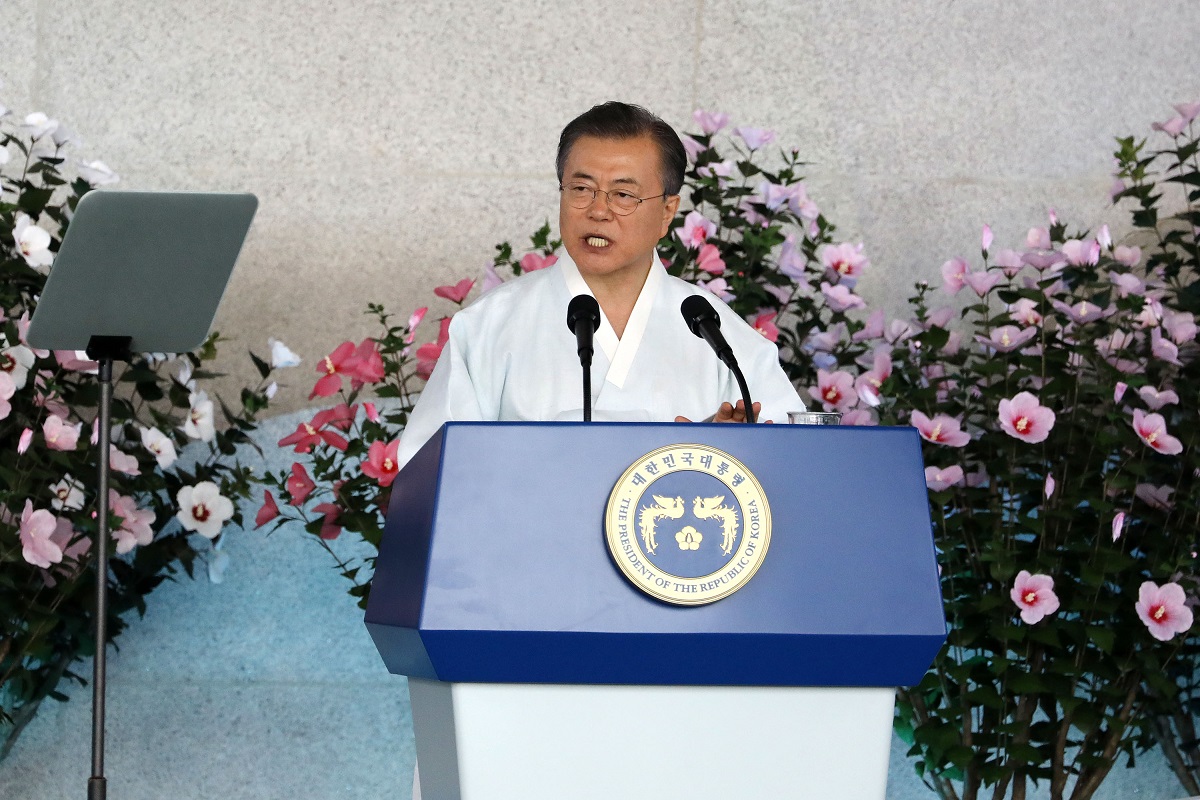In refreshing contrast to Donald Trump’s handling of the coronavirus, the landslide victory of his South Korean counterpart and ally, Moon Jae-in, has been attributed primarily to his response to the pandemic. In a very real sense, the voters have rewarded him with another spectacular innings at the crease in Seoul.
Historians will record what has been called an “epidemic-era election” as one that yielded a famous victory. Historic indeed has been the election per se as much as the result. The turnout was 66.2 per cent, higher than any parliamentary election in South Korea since 1992.
This in itself is testament to the resilience of democracy at a devastating juncture for the world. The other critical feature is the victory of the pro-Left, by South Korean standards. Moon’s left-leaning Democratic party and its smaller affiliate won 180 seats in the 300-seat assembly ~ the biggest majority in the National Assembly by any party since the South’s transition to democracy in 1987.
The conservative opposition United Future party and its smaller sister party won 103 seats. Before the outbreak, observers had expected Moon’s party to struggle, with job creation, wages and North Korea’s nuclear weapons programme dominating the political agenda.
His approval rating fell to 30 per cent in 2019 amidst an economic slowdown and a political scandal involving the then justice minister. But Moon’s response to the coronavirus outbreak has seen his approval rating jump from 41 per cent in late January to 57 per cent, according to Gallup polls.
His “coronavirus diplomacy” has done the Opposition in. The strategy was marked by interaction over the phone with other world leaders who were eager to learn from South Korea’s response. The outcome of the election reaffirms that this boosted public support for the administration in Seoul.
Moon had successfully portrayed the outbreak as an “opportunity for South Korea to restructure its economy, capitalising on such industries as Artificial Intelligence and biopharma. The successful opposition conservative party candidates included Thae Yongho, the most senior diplomat to have defected from North Korea.
Thae was deputy ambassador at the North Korean embassy in London when he defected with his wife and two sons in August 2016. He has since become one of the regime’s most vocal critics.
Campaigning under his new South Korean name, Thae Gu-min is the first North Korean defector to be elected to the National Assembly via a constituency vote. Just as Moon’s victory is unprecedented, so too is the predicament of the main opposition party, now facing an existential crisis.
It has been a famous victory for President Moon’s Democratic Party of Korea, even as it underscores that competence can bring a democratic dividend. And some good must come of it… for all the volley and thunder from Kim Jong-un’s North.











